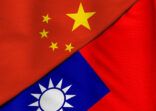Mandy Lui, BNP Paribas
Global firms used to competing with each other will find that when distributing products in the mainland, distinction from local players becomes the biggest competitive challenge, said Lui.
“In China, the competition is with very strong products offered by onshore managers. So brand name remains a crucial factor for investors on the mainland as much as [a firm’s] investment capability.”
China fund distribution is especially challenging for the “foreign fund houses that lack all the relationships needed”, she said.
A way to build relationships is through recruitment of locals who have established industry contacts as well as experience with a global firm. But it is difficult to find such talent in China.
“Foreign fund houses have been fighting for the talent pool, which is not at all large. We have also seen a rather high turnover in individuals who have combined local and global experience,” she added.
Lui said foreign managers will need to find a way to convey the message to domestic investors that they are also known as an onshore investment expert. In Hong Kong, a new entrant to the market would launch a branding campaign and perhaps put advertisements in the public transit system.
However, China’s compliance regulations have effectively prohibited foreign managers from advertising locally. Foreign managers are not allowed to promote the firm or the product offerings to the mass public with common marketing strategies.
An exception is global managers with IM WFOE structures, but they are allowed only a limited degree of marketing to the investors they are allowed to serve, added Miao Hui, senior analyst at Cerulli Institute, who leads the China research initiative. Hui told FSA previously that foreign managers with IM WFOEs are employing modest product strategies in China.
Building channels
BNPP AM targets China’s high net worth clients and distributes their products in three ways: Through HFT Investment Management, the firm’s joint venture with Haitong Securities, through BNPP’s banking arm in China and through partnership with other banks holding QDII (Qualified Domestic Institutional Investor) quota.
The firm’s QDII partner for the past six months has been Standard Chartered. Lui describes this channel as “the most straightforward” among the three.
“Despite the limited QDII quota available, we still see opportunity especially from the investors who wish to switch their existing investments to other products under the QDII scheme,” she added.
She said her team would study further distribution with BNPP’s onshore banking arm. Using this approach, the bank could develop structured products with underlying assets investing in the funds managed by BNPP AM.
“We constantly explore how viable this channel is in partnership with our own bank.”
QDLP establishment
Foreign managers can also build a domestic reputation by applying for a Qualified Domestic Limited Partnership (QDLP) license in order to recruit domestic investors.
The programme allows QDLP licence holders to gather domestic qualified investors’ money to invest offshore and showcase foreign managers’ expertise with global investments.
After three years of unofficial suspension, local media reported that China has plans to revive the programme, citing sources in the local regulatory bodies.
Lui confirmed that BNP Paribas is among the firms that have converted their investment advisory wholly foreign-owned enterprise into an entity that can obtain a QDLP license. She said the entity is currently in the administrative process, which is expected to take a few more weeks.
Potential high net worth clients in China are sophisticated enough for QDLP products, she said.
“[China’s investors] realise that there will be volatility, especially in equity investments. They generally require us to present long track records and explain how the funds performed through different kinds of financial crises.”
She added that Chinese investors are more interested in innovative investment strategies, including ESG themes, compared to investors in Hong Kong and Singapore.

















